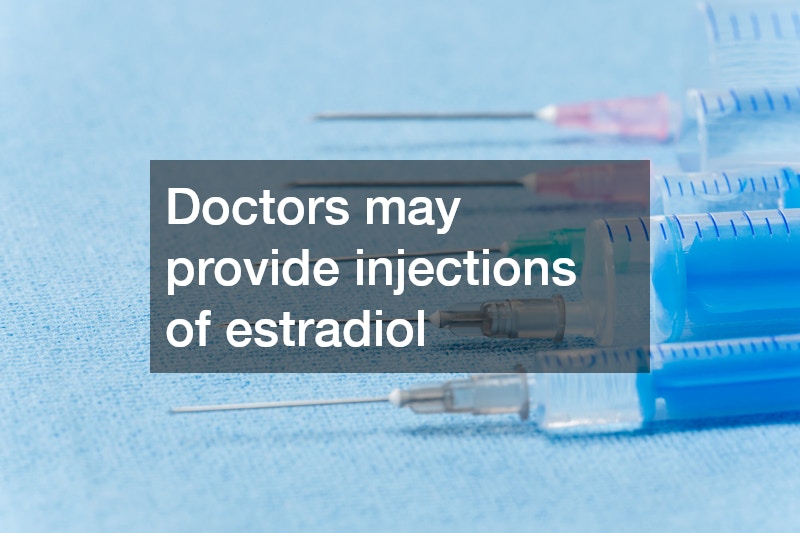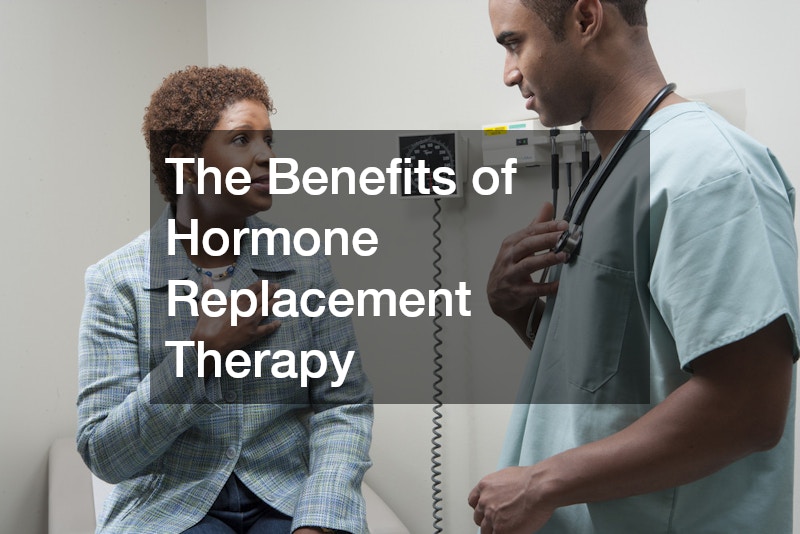
Many people suffer from distressing physical symptoms, which their doctors may sometimes find to be due to hormonal imbalances. If your doctor lets you know that you have a hormonal imbalance, they will often recommend hormone replacement therapy. There are several situations for men and women for which HRT (hormone replacement therapy) can be helpful. HRT can be administered in capsules, injections, or patches.
Your primary physician may discover your hormonal imbalance as a result of blood tests. However, if you want to receive HRT, it is more frequently prescribed by hormone replacement therapy doctors, such as OB/GYN doctors or endocrinologists. Those doctors are more likely to act as an ongoing hormone replacement team to monitor your HRT levels. Many women who struggle with menopause would benefit from hormone optimization for women.
According to Lifeforce, when a doctor recommends this fuller program for a woman, the doctor would add a healthy diet, exercise, and stress reduction coaching to their daily practices. A program like this, which combines the best hormone replacement therapy for weight loss with other lifestyle changes, may prove to help a client manage hormonal symptoms and lose weight. 
Caring for yourself means taking care of medical issues before they cause serious problems. If your doctor discovers you have a hormone imbalance, they may suggest a remedy. If you’re a woman, you may find a solution at a women’s hormone clinic. According to Her Way Health, women who visit a clinic for hormone replacement may be seeking solutions to a weight problem, a fertility problem, or menopausal symptoms.
At an HRT clinic for women, the doctors take blood tests after reviewing your health history and symptoms. Since menopause involves the reduction of hormones that prepare a woman for birth, this hormone reduction will produce physical and emotional symptoms. Doctors may provide injections of estradiol or progesterone to relieve menopausal symptoms such as hot flashes, vaginal dryness, and mood changes.

A clinic or a gynecologist may provide hormone replacement therapy for fertility during a woman’s childbearing years. According to the Mayo Clinic, the doctor may order hormone replacement after a series of tests. Some women have difficulty losing weight, which is related to weight loss. According to Healthline, the best hormone replacement therapy for weight loss may impact a client’s diabetes, which is often related to a woman’s weight.
Hormone replacement therapy or HRT Complete E can help improve many people’s lives by solving a number of health issues that they face. If you feel like you can benefit from it, do some research about it first so that you can understand what it entails. If you find out that you may need something like testosterone replacement therapy, you need to find a professional after reading about the process.

The professional should answer any HRT questions that you have and help you make an informed decision about whose outcomes you know and are comfortable with. It’s also a good idea for you to learn about what people who have undergone the process feel about it. Search online for things like “my HRT journey” to read stories from people who have shared their experiences on the same online.
After doing this, you can be sure that you’ll prepare yourself well for the event mentally. You can be sure that you’ll get more gratification in the end, and this makes it well worth your time to do as much research as possible. Remember that you need to be comfortable with all details of the process for the best outcome, otherwise, take as much time as you need to take for this part of the process.
The modern medical industry covers many different aspects of health, and today’s American women may take an interest in hormone replacement therapy, or HRT, when they are older. Or, if some women suffer from fertility issues, they may visit a fertility clinic, where doctors may help them diagnose the problem. The arena of womens health covers half the world’s population, so naturally, infertility solutions, local gynecologists, and HRT clinics may be easy to find. If today’s American women are looking for a method for anti aging therapy, HRT may capture their attention. What does it entail? And what can be done about infertility?
What to Know About HRT and Menopause
Men and women have a number of hormones in their bodies that dictate their physical bodies, their mental affinities and capabilities, and more. This ranges from early childhood to old age, and men and women alike may experience a number of changes across the decades. For women in particular, they may face menopause when they reach middle age or so. What should e clarified is that “menopause” itself is in fact only a 24 hour change that a woman will experience, with all her life after that constituting the post menopausal phase. In the years leading up to menopause, a woman may experience a phase known as perimenopause.
It may also be noted that even as human life expectancy rates have risen in the last few centuries, the typical ages for menopause are largely the same as ever. Every woman is different, but the mean age of menopause today is close to 51. In rare cases, women may experience it as young as their 30s or as late as their 60s, but most often, a woman may expect menopause somewhere between the ages of 40 and 58. Once a woman starts perimenopause, menopause may be about four years away, and her hormones are rapidly changing, including a decrease in estrogen levels. Nine in ten women will experience perimenopause, and later, they will live in the post menopause phase.
In general, women do not enjoy any aspects of menopause, as the perimenopause phase includes irregularities in their menstrual cycles, and menopause may include hot flashes, trouble with sleep, mood swings, infertility, and more. To counteract all this, and to reverse a general low level of estrogen, women may turn to HRT.
HRT is nearly always safe, and a woman in perimenopause or early in the post menopause phase may consult her doctor to get a referral to an HRT clinic nearby. There, she may agree to undergo this therapy, which involves injecting estrogen directly into her system to increase its levels. Doing this may minimize or even eliminate the many undesirable aspects of menopause, both mental and physical. Women who do this are urged to regularly visit an exam clinic, however, to have mammography work done or even breast biopsies, if need be. Why? They are at an increased risk for breast cancer, as estrogen is a major factor in breast cancer development. Fortunately, these regular checkups may help any woman stay on top of breast cancer development risks.
Infertility
What about fertility issues? A woman in a man-woman couple may run into unexpected trouble conceiving a child, and many causes may be potentially behind it. Studies show that women who smoke a lot of tobacco, drink a lot, or use hard drugs suffer lower fertility rates, and the same is true of women who live in a lot of stress (such as in financial hardship). Physically, the issue may be the ovaries’ failure to release an oocyte (“egg cell”), or if a fertilized zygote implants itself on the fallopian tube wall instead of the uterine lining to form a proper placenta. In other cases, her male partner’s physical health might be the issue, such as a low sperm count or radiation damage to the testicles.
A woman and her male partner may visit fertility clinic to undergo any number of tests, and the solution may range from medication to HRT to surgery, or simply a lifestyle change. Women may have their ovaries or fallopian tubes operated on, or making use of in vitro fertilization or even having a surrogate mother carry the fetus if the actual mother cannot for some reason.
